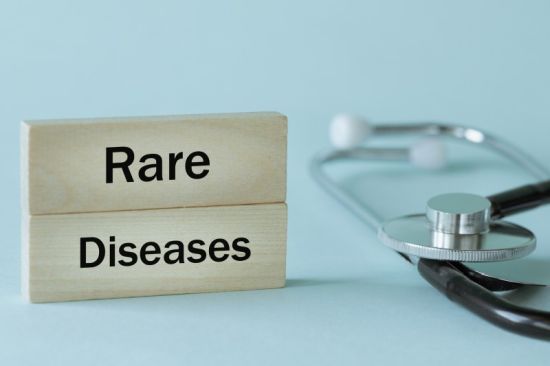Chances Are You Know Someone with a Rare Disease
Johns Hopkins experts join global community in highlighting Rare Disease Day, Feb. 29
28-Feb-2024

Credit: Getty Images
Newswise — The leap year day, Feb. 29, occurs only once every four years, and each year around this time comes a global effort to recognize rare diseases. Some 30 million people in the U.S. — 10% of the population — have a rare disease, and Johns Hopkins Medicine experts are working alongside others around the globe to highlight rare disease impacts on research and treatments and ways to seek expert care.
“It’s highly likely that most of us will know someone who has a rare disease,” says Amy Patterson, M.S., C.G.C., genetic counselor in the Department of Genetic Medicine at the Johns Hopkins University School of Medicine. “Any pediatric cancer, Down syndrome and many other conditions are classified as rare conditions.”
Referring to the U.S. population, a disease is considered rare if it affects less than 200,000 Americans. Ultra-rare diseases affect fewer than 50,000. Most rare conditions have genetic roots, and some are caused by infectious diseases.
“The conditions can be diagnosed in anyone, at any point in life, and as genetic testing becomes more accessible and as life spans increase, we’ll likely see more people diagnosed with genetic and rare conditions,” says Patterson.
Who should be aware of rare diseases?
Patterson and her colleagues hope to heighten awareness of rare diseases among all populations.
She notes that nearly everyone who is pregnant or trying to become pregnant may be offered genetic screening for hereditary conditions. A small subset of conditions can be detected prenatally during ultrasounds.
Many states also provide newborn screening for certain hereditary conditions that are potentially lethal but treatable.
Communities provide support and research advocacy
Many rare conditions have advocacy communities that share insights and resources, and that raise funds for research and advocate for new legislative policy regarding topics such as insurance payments for treatments, says Patterson.
Last year, Maryland joined 25 other states that have each created a rare disease advisory council to help guide legislatures on policies affecting people with rare conditions.
The federal government’s Orphan Drug Act offers tax incentives to pharmaceutical companies to develop treatments for rare diseases. Much of the research focused on rare diseases in the U.S. occurs at major medical and academic medical centers.
The long road to a rare disease diagnosis
“The average diagnostic odyssey for a rare disease is about eight to 10 years,” says Patterson. “Many people will bounce from specialist to specialist and go through rounds and rounds of genetic testing, potentially losing time for effective treatments and research opportunities.”
Patterson says the hope is that rare disease diagnosis will become easier with new genomic technology and research. Signs and symptoms vary from condition to condition, and those who suspect they have a rare condition should seek help from a specialist, says Patterson. A genetic counselor, she says, can be an intermediary and provide a holistic look at a person’s health and pull together various pieces of a complex health puzzle.
Patterson and other experts in the Johns Hopkins Department of Genetic Medicine are available for interviews to discuss rare diseases, the need for awareness, when clinicians might suspect a rare condition and how to obtain expert care.
Source: Newswise https://www.newswise.com/articles/view/807665/?sc=dwhp&pio=10049367
For more HIV and AIDS News visit...
Positively Positive - Living with HIV/AIDS:
HIV/AIDS News |